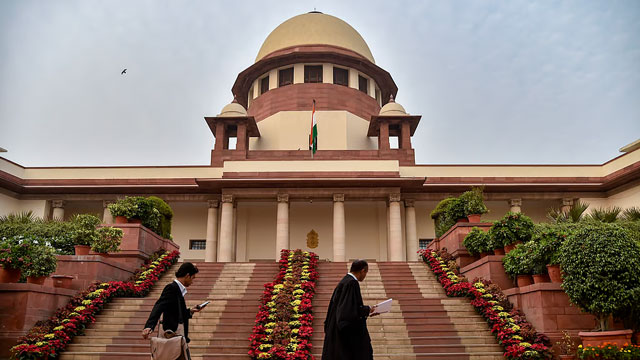Daijiworld Media Network – New Delhi
New Delhi, Nov 15: In a major escalation of the long-running NEET exemption row, the Tamil Nadu government has approached the Supreme Court challenging the President of India’s decision to withhold assent to the Tamil Nadu Admission to Undergraduate Medical Degree Courses Bill, 2021. The state has urged the apex court to declare that the bill should be treated as having received Presidential assent under Article 254(2) of the Constitution.
According to the petition, the communication of the President’s decision—relayed by the Union Ministry of Home Affairs to the Tamil Nadu Governor and subsequently conveyed to the state government—is “patently unconstitutional” and “liable to be set aside”. The state has also sought fresh consideration of the bill by directing authorities to place it once again before the President under Articles 201 and 254(2).

The plea, expected to be heard by the Supreme Court within a week, highlights what the Tamil Nadu government describes as a “grave constitutional impasse”. The state contends that despite the bill being passed unanimously in the Tamil Nadu Assembly and after detailed clarifications were submitted to the Union government, the assent was withheld “mechanically and without assigning reasons”.
Quoting from its petition, the state argued that excessive emphasis on centralised examinations has severely disadvantaged socially and educationally backward communities. “Examination is something quite different from education… the backward communities which have hitherto not had the chance of entering the portals of universities are absolutely kept out,” the plea said, defending the state’s long-standing opposition to NEET.
Tamil Nadu reiterated that it has historically followed an admission model tailored to its social realities. The petition recalled the state’s experience with the earlier Common Entrance Test (CET), which was eventually abolished after the Dr. Anandakrishnan Committee found it disproportionately harmful to rural and marginalised students. This led to the enactment of the Tamil Nadu Admission in Professional Educational Institutions Act, 2006.
The suit raises wide-ranging constitutional questions relating to federalism, the limits of gubernatorial power under Article 201, and the scope of Article 254(2) in resolving conflicts between state and central laws. The state also invoked Article 47, underscoring its duty to protect public health by ensuring equitable access to medical education.
As the NEET debate continues to trigger political and legal flashpoints across Tamil Nadu, all eyes are now on the Supreme Court, which is expected to take up the matter shortly.